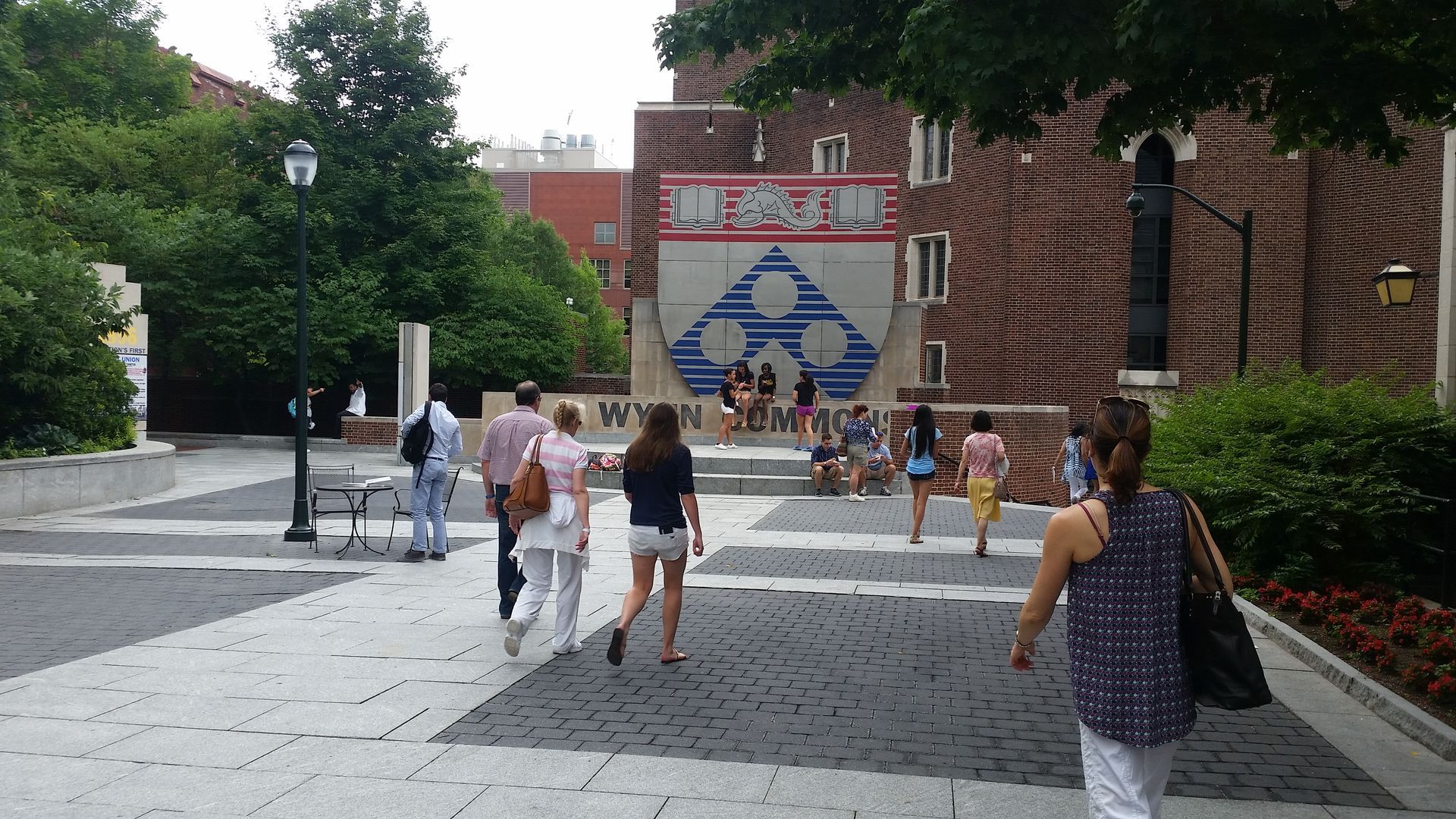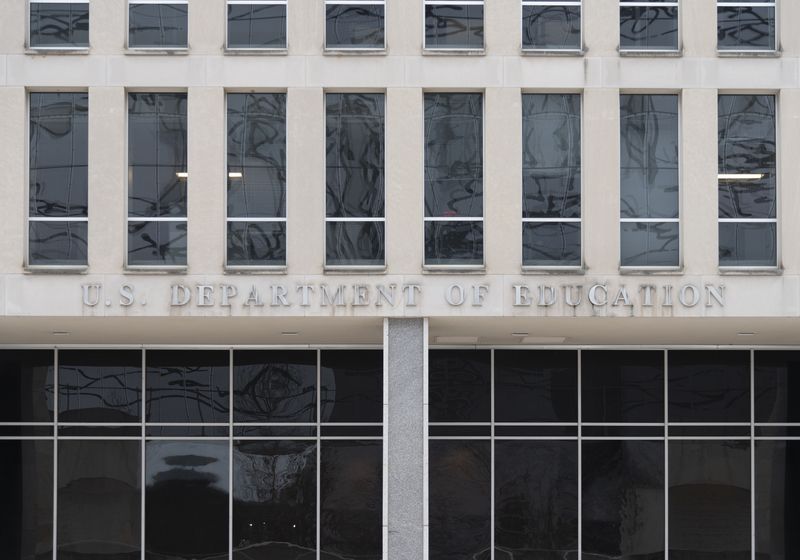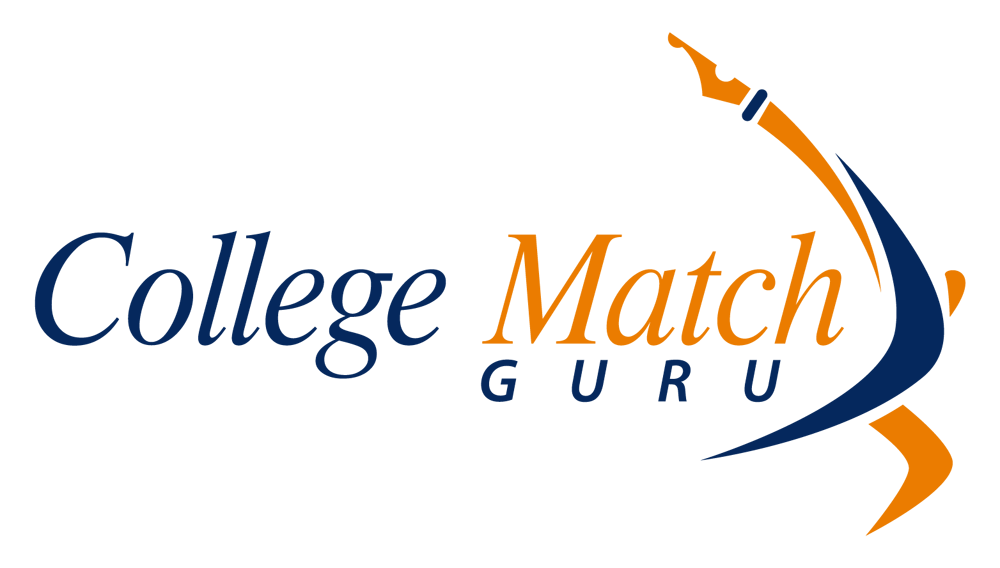The Guru's Blog

The Trump administration has recently taken actions to freeze federal funding for several prominent universities, citing concerns over campus activism, allegations of antisemitism, and issues related to diversity and inclusion policies. These actions have sparked significant controversy, raising concerns about government overreach and the protection of academic freedom. While over 60 universities are facing funding reviews, seven universities have been targeted already because of their prominence. By far, Harvard University faces the largest funding freeze, with $2.2 billion in multi-year grants and $60 million in multi-year contracts. Harvard University has been particularly vocal in its opposition, filing a lawsuit against the administration and publicly rejecting its demands. Columbia University has had $400 million in federal grants canceled. They were threatened with a far higher amount, but negotiated a settlement that included adopting the government’s definition of antisemitism, willingness to adhere to the administration's demand for stricter disciplinary actions against students deemed to be disruptive and academic oversight of many Asian and Middle Eastern programs by the University’s senior provost. In response to a funding freeze on $1 billion in research funds, Cornell has attempted to placate the Trump administration while attempting to retain their educational integrity. They recently announced they were renaming their Dysob School of Applied Economics and Management to the Donald J. Trump School of Business Excellence in Business. This change was made after a significant donation and pressure from President Donald Trump, according to reports. The University of Pennsylvania was slapped with a freeze on $175 million because they allowed a trans swimmer to compete in an NCAA swim meet last year. Penn responded by saying that they have no athletic policy of their own - they follow NCAA’s policies, which at that time allowed trans-sexual students to compete. The freeze is still in place, but no new sanctions have been levied. Other institutions that have been sanctioned include Brown ($510 million), Princeton ($210 million, which represents half of their federal grant money) and Northwest university ($790 million). To date, academic institution responses have varied. Harvard University has been particularly vocal in its opposition, filing a lawsuit against the administration and publicly rejecting its demands. It has also floated bonds to recapture lost federal funds. Columbia University, in contrast, has agreed to implement some of the administration's requested policy changes to avoid losing federal funding. Other universities are still in the process of developing their responses. For instance, while Cornell has not yet filed a lawsuit, legal experts, including Cornell Law Professor Michael Dorf, have publicly stated that the funding freeze of over $1 billion is likely "illegal." At the same time, the university has attempted to placate the President by renaming their Dysob school in his honor. Key Points: 1. The administration's actions have raised concerns about the potential erosion of academic freedom and the politicization of higher education. 2. The financial impact of the funding freezes will have significant consequences for research and innovation at more that 60 universities. Penn has already reduced or eliminated several graduate programs and most schools will find they need to shift student research to favor graduate programs and away from undergraduate students. 3. The legal battle for NIH and NSF funds is just getting underway. It will take months perhaps years to sort out where and if the government has overstepped its legal authority to freeze funds authorized by Congress. 4. Any legal recourse that universities are able to win won’t be in time to address funding losses for the 2025/26 academic school year. Students entering majors that rely on lab or research activities need to talk with their school’s department heads to see how their courses might be affected. It's crucial to follow this developing situation as it unfolds, as it has far-reaching implications for the future of higher education in the United States.

Over the past two months, significant changes within the U.S. Department of Education have profoundly impacted student loans and financial aid. Many news articles have discussed these changes and their impact on students who are currently repaying their loans. This Blog article recaps some of the changes that have been made to the federal student loan system and discusses how they might affect students looking at colleges or looking forward to starting college next year. 1. 50% of the Department of Education staff was laid off two weeks ago, including most of the staff in the Federal Student Aid Office (FSAO), which oversees federal student loans and Pell grants. This could cause delays in rolling out the FAFSA form or making sure that the FAFSA website is online. In 2022, the FAFSA, which usually rolls out October 1st, was delayed until mid-December. This was due to implementation problems streamlining the FAFSA as mandated by Congress. Part of the reason the update took so long is the Federal Student Aid Office was understaffed for the project. This could just be a taste of the future with only a bare-bones staff left after the firings. It is interesting to note that the FAFSA website was down for hours the day after the FSAO cuts. Bottom Line for high school Seniors: Read up on current student loan guidelines on FinAid.org and make your FAFSA applications as soon as the application is released in the fall. 2. All Income Driven Reduction programs (IDR) have been effectively halted because borrowers cannot access the form required to update their income as required by the program. There have been Reddit and newspaper reports of students’ loan payments ballooning since the IDR programs have been suspended. An article in Fortune (3/17/25, Preston Fore) gave examples of monthly repayments that ballooned from $500 to several thousand dollars. It is important to note that IDR programs, including the Income-Contingent Repayment plan (ICR), the Pay as You Earn plan (PAYE), the Revised Pay as You Earn Plan (REPAYE) and the Saving on a Valuable Education Plan (SAVE) are plans spun off of the original Income Based Reduction (IBR) plans authorized by Congress in 2009. While the Trump Administration may be able to discontinue all IDR programs, it should not be able to discontinue the IBR program. The New York Times (2/28/25, Tara Siegel Bernard) quoted Scott Buchanan of the Student Loan Servicing Alliance saying he expected that IBR program applications will be available again in a few months, but we just don’t know. Bottom Line for prospective and current federal loan borrowers: Do not base your college or career plans on the hope of income-based repayment programs. If you need to borrow a lot to attend college, make sure your major and eventual career will support your loan payments. If you’re setting your sights on an expensive private college, consider more affordable alternatives like state universities. 3. The Public Service Loan Forgiveness Program (PSLF), authorized by Congress in 2007, allows borrowers who work for the any government office or non-profit organization, including schools, libraries and hospitals to apply for loan forgiveness after 10 years. PSLF is an IDR-based program, so during the repayment period, borrowers’ monthly payments are often much less than they would be on a straight 10-year repayment plan. An Executive Order signed by President Trump on March 7th immediately removed any program that may impact immigration, DEI, LBGTQ+ issues or any service that may “obstruct or influence Federal Government policy” from the PSFL program. This impacts thousands of health care workers, non-profit employees and many teachers who anticipated writing off the remainder of their student loans after 120 payments. Instead they may face an immediate increase in their monthly repayment schedule. Bottom Line for high school and college students looking to enter careers in teaching, governments work or health care: PSFL programs may be reduced to only certain professions, subject to future review or eliminated because repayments are based on an IDR formula. You should base your career and lifestyle choices on repaying student loan on a 10-year amortization schedule. 4. Policy makers are considering changes to tax laws exempting student loans from taxation. Traditionally, the federal government has encouraged high school students to continue on to college by making college education affordable. Financial aid grants are not taxed. IDR and IBR balances that are forgiven are not taxed. Student loan interest can be deducted on your Schedule A. Congress is currently considering eliminating all of these “perks”. Bottom line: A tax on grants effectively reduces the net benefit of the grant. At a 12% tax rate, a $10,000 grant will be worth only $8,800 after taxes. Students and their families will have to make up the difference out of pocket – not directly to the school, but to their family budgets on April 15th when they absorb the tax hit. Young families struggling to make ends meet may also loose the interest write-off every year they’re repaying their student loans. These changes to the Department of Education, student loan programs and, potentially, the tax code are an evolving story. The Trump Administration may fine-tune these programs or discard them. Judges have stepped in and may find that these changes are unlawful and must be reversed. High School Seniors are under the gun – they need to evaluate these changes immediately so they can make sure their college choices are still appropriate by the May 1st decision deadline. Juniors have the luxury of taking a wait-and-see position as policy is solidified. Students in college need to reevaluate the career choices if they were planning on refinancing their loans into an IBR or IDR or if they were planning on applying for the PSFL program. To stay safe, keep informed, don’t take on too much debt, write your congressman.

Over the last several weeks, the Trump administration has curtailed federal funds to research institutions, including most colleges and universities that do any kind of scientific or medical investigation. Recent administration directives have mandated that the NIH cap indirect research grants at15% of a project’s direct cost. This is supposed to result in as much as $4 billion in federal budget savings (1), but could place many research projects in jeopardy. According to Arnold & Porter(2), research institutions typically receive two to three times that amount from the NIH. Many schools cannot afford the loss of millions of dollars in expected federal grants. The Trump administration has also put in motion plans to drastically cut National Science Foundation (NSF) budget and staff. According to R&D World, NSF, “a major funder of basic research in the U.S., would be forced to considerably reduce or halt grant awards, potentially impacting thousands of researchers, universities and projects.” (3) On another front, the administration has attempted to discontinue all USAID funding, including research fellowships and programs in Global Health, Economic Growth and the environment. USAID funding, much of which was already authorized, continues to be in limbo: Judges have ruled the program funding must continue while the administration says they’ve canceled the projects, so there is nothing left to fund. While many of these funding cuts have been temporarily suspended by federal judges, research institutions like universities have taken steps to reduce their risk in the event the grants are reduced, modified or rescinded. The New York Times (4) reported that many universities, like NC State and Stanford, are freezing all new staff hiring. University of Kentucky cited a potential loss of more that $20 million in NIH research funding if the freezes were to be made permanent. The Daily Pennsylvanian, Penn’s newspaper reported that Penn Medicine stands to loose up to $240 million if current situation stands. Penn Medicine was instructed to cut Ph.D. admissions for 2025/26 by 35% due to funding uncertainties.(5) The damage is not just affecting Ph.D. programs and graduate research. As the number of research opportunities diminish, undergraduates at most universities will have less opportunity to do research as funding is reserved for the graduate students that rely on it. Even at colleges, where there are no graduate students, opportunities to do research will be affected as schools loose NIH funding they have relied upon in the past. The only thing we know for certain at the moment is that the situation is fluid and government-funded research will shrink going forward. I’ve advised my Seniors that hope to do any kind of undergraduate research to contact their schools in April to see how their programs may be affected by the change in federal research funding; students can change their school decision easily before May 1st. I also suggest that they contact the head of their departments and establish some contacts so they can be first in line for undergraduate research opportunities once they get to school in August. For now, sit down and grab some popcorn. There’s sure to be several unexpected twists and turns to this saga as the summer unfolds. (1) Federal judge blocks drastic funding cuts to medical research, AP, Neergaard L., Casey M, 3/5/25 (2) Impact of Trump Administration Directives on Scientific Research in the U.S.,Arnold & Porter, 2/12/25 online article (3) NSF layoffs in 2025: Deep budget cuts headed for U.S. research sector, Buntz B, R&D World, 2/21/25 (4) NYT, As Trump Goes After Universities, Students Are Now on the Chopping Block, 3/6/25 (5) Penn Medicine graduate programs instructed to cut Ph.D, Admissions by 35% due to funding uncertainty, Chitirala I, Ryan F, DP 2/25/25

The Department of Education has been a target of Republicans for more than 10 years. In February, President Trump, promising to eliminate the department, made his first round of cuts by eliminating almost all of the data-gathering contracts for primary and secondary education research. The Institute of Education Sciences (IES), the independent research arm of the Department was told to shut down all activities. According to NPR in an article published online on February 10th, EIS is responsible for gathering and publishing data on many aspects of education including research-backed teaching practices and student achievement. So far, 89 IES contracts have been canceled, affecting the full range of programs geared to research issues affecting private schools, home-schooling and technical education. A study investigating ways to help students make up ground in math skills that have slipped since COVID was terminated, and serves as a good example of the type of research IES funded. For Secondary education, collection of data related to colleges and college admissions may also be discontinued. The College Navigator website, which has been an important tool to research colleges for high school students and educational consultants may be shut down as early as February 20th. For the moment, the National Assessment of Educational Progress (NAEP) will not be on the chopping block. This program collects data on how K-12 students are mastering skills in core subjects, such as reading and math. The bottom line: Almost all federally-funded educational research has be discontinued. Without research on how students are learning, or programs to help students behind in their learning catch up, the federal government has eliminated the opportunity to establish national baselines or educational goals.

In many ways, seniors are in the cross-hairs of the COVID-19 pandemic. Their financial situations may have changed as the bottom fell out of the stock market. They aren't able to visit colleges to decide between their top choices. Their AP tests in May have been canceled and not rescheduled and the test format and scope have changed. Because things are changing daily, it's more helpful to provided links to dynamic resources than to publish lists of important changes to school policies at any given moment. 1. Visiting Schools and Deposit Deadlines NACAC, the National Association for College Admissions Counseling, has posted a searchable database that lists whether or not college are open to visitors, are hosting any admission events and whether or not they have changed their deposit deadlines. The database is searchable by college, location or status. Many colleges are developing resources to aid their accepted students. Smaller schools are doing Video conferences with admissions officers, many schools are providing Zoom meetings. Seniors should check with their school's admissions offices to see what resources are available. 2. Test Optional Policy Changes At the moment, a dozen schools that are not usually test optional will go test optional, at least for their 2021 applications. That number is likely to increase during the spring and summer. Fair Test keeps a current list of all test-optional schools and you can use this resource to see the list of schools that will be temporarily test optional. 3. AP Test Requirements If you're still confused about what the College Board is doing about AP tests or when the online tests will be administered, please use this link to AP Central for a detailed explanation of what you'll be required to know for each AP course. At this time, the test dates have not been published, so check the link often. One of testing partners is providing free on-demand AP tutoring in almost every subject. Please contact me if you are interested. If you have any specific questions, please know that College Match Guru is here to help! Give me a call or send me an email and I'll do all I can to help during this troubled time!

The College Board announced today that AP tests will not be given in their usual proctored format this year because of the Corona virus. Instead, students wishing to take the AP test will be offered the opportunity to take the tests at home. For most courses, the test will only include sections that should have already been covered in class. For the Art-related courses, students will need to submit a smaller number of works and investigations. AP tests are important because most colleges and universities will give students credit for AP test scores in the 4 and 5 range. This can allow students to substitute other classes so they can explore areas they may find interesting or to graduate early. AP tests are an indication that students have mastered their course work and most colleges consider AP courses in their admissions decisions. Art works and investigations will be due May 26th; testing dates for other courses have not yet been published. For more information, go to the College Board website https://apcentral.collegeboard.org/about-ap/news-changes/coronavirus-update .



